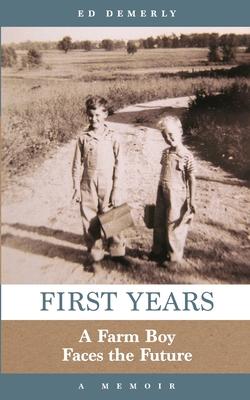This is the memoir of the early years of the second son of Michigan farmers in a family of five siblings. His father had an eighth-grade education; his mother completed high school. He was born three weeks before Pearl Harbor was attacked, and until the 1950s, when post-war America began to prosper, he lived in near poverty in an uninsulated, two-room-plus attic house that had been a granary. He lived on the farm until he entered the army at age twenty-one. In many ways, it was an isolated childhood so that he had little exposure to a world outside the immediate farm community. The nearby Methodist church had a congregation of perhaps sixty members-mostly neighboring farmers. He attended the same public school from kindergarten through eleventh grade all in the same 1880s building. His graduating class of fifty students in 1959 was the first to attend the new high school. Except for a two-week family Christmas vacation to Florida in a car pulling a small camper trailer, he essentially remained in Michigan. Only on one occasion in all those years before college did he not sleep at home or with close relatives. When somewhat by coincidental circumstance, he was admitted to Michigan State University, and although he was the class salutatorian, he was very poorly prepared both academically and socially. Within his extended family, he was first to attend college. This memoir is a story of transition and gradual growth. It attempts to emphasize how early life on a farm instilled personality and character that worked in both positive and negative ways as he matured. This memoir covers his life through college and two and a half years in the military and includes an appendix timeline of significant events in the world and in his life from 1941 to 1966.

This is the memoir of the early years of the second son of Michigan farmers in a family of five siblings. His father had an eighth-grade education; his mother completed high school. He was born three weeks before Pearl Harbor was attacked, and until the 1950s, when post-war America began to prosper, he lived in near poverty in an uninsulated, two-room-plus attic house that had been a granary. He lived on the farm until he entered the army at age twenty-one. In many ways, it was an isolated childhood so that he had little exposure to a world outside the immediate farm community. The nearby Methodist church had a congregation of perhaps sixty members-mostly neighboring farmers. He attended the same public school from kindergarten through eleventh grade all in the same 1880s building. His graduating class of fifty students in 1959 was the first to attend the new high school. Except for a two-week family Christmas vacation to Florida in a car pulling a small camper trailer, he essentially remained in Michigan. Only on one occasion in all those years before college did he not sleep at home or with close relatives. When somewhat by coincidental circumstance, he was admitted to Michigan State University, and although he was the class salutatorian, he was very poorly prepared both academically and socially. Within his extended family, he was first to attend college. This memoir is a story of transition and gradual growth. It attempts to emphasize how early life on a farm instilled personality and character that worked in both positive and negative ways as he matured. This memoir covers his life through college and two and a half years in the military and includes an appendix timeline of significant events in the world and in his life from 1941 to 1966.